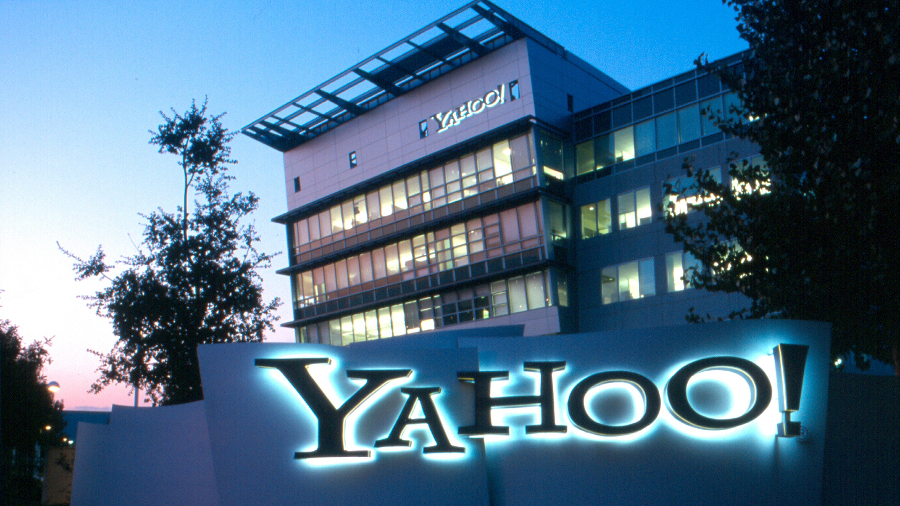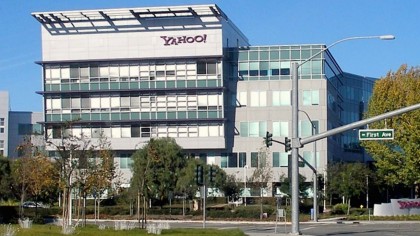What went wrong at Yahoo, and what happens next
Analysis: The end is near, but it's really just the beginning

Yahoo has struggled for years to regain the glory of the pre-dot com bubble burst days, fighting for air while rivals like Google and Facebook grew and thrived.
By April 18, it may be owned by one of those rivals.
What happened to the company that was once king of the net? While shareholders are fed up with the company's continued insolvency and CEO Marissa Mayer's business leadership, Yahoo's tortured history shows that this sale was inevitable years before Mayer came into power, even if her tenure put the final nail in the coffin.
With final bids for its web and news businesses due next week, here's a look at what went wrong at Yahoo, who wants to buy it and what comes next.

Plummet from greatness
From Yahoo's inception in 1995 to 2000, it grew from a promising start-up with $2 billion in venture capital to a $140 billion force of nature.
Almost as synonymous with the internet as AOL, Yahoo foresaw the profitability of the medium and tried to snatch up as many online businesses as possible, spending billions on now-defunct sites like Geocities, Hotjobs, and Broadcast.
Following the dot-com collapse, Yahoo's value fell to $11 billion in 2002, its assets and investments severely devalued, along with every other tech giant. Yahoo wasn't alone in putting too much money into concepts without considering whether they could actually ever earn profits.
Sign up for breaking news, reviews, opinion, top tech deals, and more.
Unfortunately for the 'hoo, it ignored the value of businesses that would end up profitable: search engines. Instead, the company leased its searches out to a start-up named Google in 2000.
When Yahoo attempted to buy Google for $3 billion in 2002, the latter wisely rebuffed the acquisition. Yahoo would eventually start its own search engine with sponsored links in 2004, but never came close to claiming Google's hold on the market.
That didn't stop Yahoo from buying dozens of other promising sites, trying to maintain its status as the one-stop shop for all things internet.
These investments never panned out as hoped. A senior member of Yahoo publicly complained about the company's "Peanut Butter manifesto": it bought anything and everything, instead of finding the most profitable areas like social media and advertising and sticking to them. This criticism precipitated another long period of decline.
In 2008, Microsoft attempted a hostile buyout of Yahoo's shareholders at $45 billion - $37 billion more than Yahoo's current estimated value. Jerry Yang, Yahoo's CEO at the time, convinced shareholders to resist the buyout, a decision that has those same shareholders fuming now, and likely has Microsoft sighing in relief.

Marissa Mayer's tenure from 2012 to today had Yahoo attempt to rebrand as a social media and video hub, primarily through its $1.1 billion purchase of Tumblr in 2013 and acquisition of TV shows like Community for the failed Yahoo Screen.
While Tumblr may have grown in popularity since then, Fortune estimates that the company only made $10 million pre-acquisition and hasn't grown enough in profitability to come close to justifying its asking price. This was likely the last straw for Yahoo shareholders.
Currently, Yahoo is valued at $32 billion dollars, but financial sites like Forbes claim that Yahoo's ownership stakes in Chinese e-commerce company Alibaba and Yahoo Japan are collectively worth $36 billion alone. Without these assets, Yahoo's day-to-day businesses operate at a huge loss.
Still, Yahoo is demanding $10 billion from potential buyers as a starting price, based on the continued strength of its market outreach and name brand.

Michael Hicks began his freelance writing career with TechRadar in 2016, covering emerging tech like VR and self-driving cars. Nowadays, he works as a staff editor for Android Central, but still writes occasional TR reviews, how-tos and explainers on phones, tablets, smart home devices, and other tech.